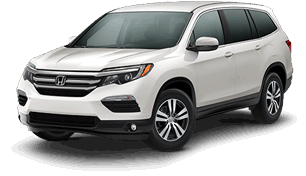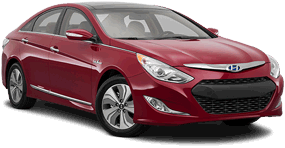An unsecured auto loan can eliminate the concern of vehicle repossession, so why don't car shoppers always go this route? Most traditional loans including mortgages and car loans are secured, but in some cases, an unsecured loan can be issued for a car purchase. Typically, an unsecured loan comes with a higher interest rate and requires a good credit score because the lender can't repossess the car if the loan is not paid back. Learn all the ways secured and unsecured car loans differ, the pros and cons of each and which option is right for you.
Secured Car Loans

'Security' refers to a lender's ability to recoup the money that was not repaid through the sale of the asset they issued the loan for. With a secured car loan or home mortgage, for example, the lender can repossess the property from the borrower and sell it in order to recover their funds. Since the loan is backed by the assets, lenders can take on more risk by approving loans to borrowers across a range of credit scores.
Pros
The benefits of secured loans for car buyers are that they are easier to obtain from most financial institutions including banks, automakers' finance divisions or credit unions. Typically, these types of loans are issued in larger amounts than unsecured loans. Secured loans also come with the advantage of lower interest rates since the car is considered collateral for the lender, reducing their risk in case of default.
Cons
The fact that the vehicle acts as collateral is also the biggest drawback if the borrower defaults on the loan because the lender has the right to repossess the car. A repossession can happen after just one missed car payment. In addition to losing the car, the borrower will also be responsible for repossession fees and the deficiency balance (the difference between the value of the loan and the amount the lender receives at auction).
Unsecured Car Loans

Unlike secured loans, unsecured loans are not issued with any specific property as collateral. Your ability to repay serves as risk mitigation for the lender along with higher interest rates. Unsecured loans are typically issued for smaller amounts such as personal loans for home improvement. Occasionally, banks or credit unions offer unsecured loans for car purchases with fixed or variable interest rates.
Pros
The biggest benefit of an unsecured car loan is that you will not take on the risk of repossession should you lose the ability to make payments. There is also more flexibility for an unsecured loan since it is not issued for a specific vehicle as secured car loans are. You'll have the freedom to use the funds to purchase any vehicle you want. Finally, the process of obtaining an unsecured car loan is quicker than a secured loan if your income, savings, credit and employment status qualify you for approval.
Cons
Despite their benefits, unsecured loans are harder to obtain since lenders will look for good credit scores and strong employment history. Because they won't be able to repossess the car, lenders need to know the borrower can be trusted to repay. Borrowers with lower credit scores can only obtain unsecured loans if they have high incomes, steady job history or a cosigner. If an unsecured loan is not repaid, it doesn't mean the borrower gets to walk away without consequences. The lender will still be able to send the default to collections. Even if qualifying is not a problem, borrowers will find higher interest rates compared to a secured loan, ranging from 8.74% to 18% on average according to Bankrate.
Which Loan Type is Right for You?

Borrowers with excellent credit and good income from steady employment will have a good chance of getting approved for an unsecured loan to purchase a vehicle. Unsecured loans will offer more flexibility since you can use the funds to buy any vehicle you want. In fact, this type of loan is popular with those shopping for a nontraditional vehicle like a classic or antique car. Unsecured loans provide more peace of mind since you'll also be able to hold onto the title of the vehicle without the concern of getting the vehicle repossessed.
For most car shoppers and especially those who don't have an excellent credit score, high income or a cosigner with those qualifications, the best bet will be to go with a traditional secured loan. A secured loan should also be the financing route of choice for anyone that wants to save on the overall cost of borrowing since interest rates are substantially lower with a secured auto loan.


